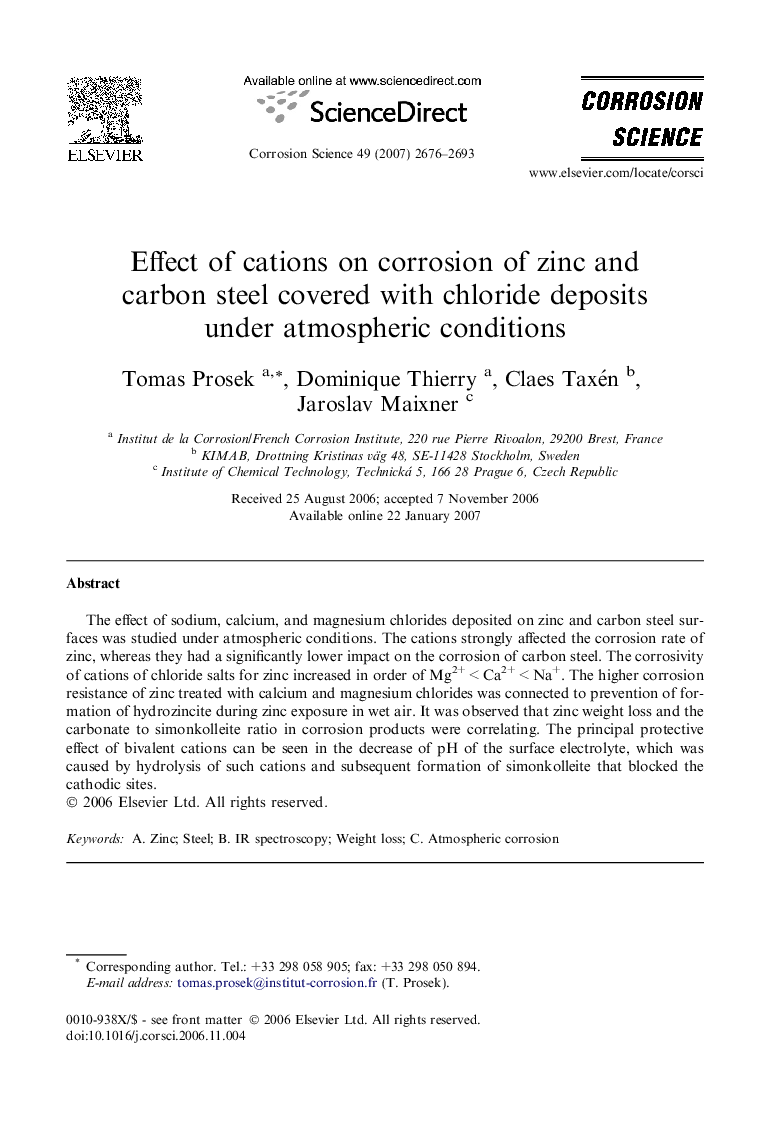| Article ID | Journal | Published Year | Pages | File Type |
|---|---|---|---|---|
| 1472066 | Corrosion Science | 2007 | 18 Pages |
The effect of sodium, calcium, and magnesium chlorides deposited on zinc and carbon steel surfaces was studied under atmospheric conditions. The cations strongly affected the corrosion rate of zinc, whereas they had a significantly lower impact on the corrosion of carbon steel. The corrosivity of cations of chloride salts for zinc increased in order of Mg2+ < Ca2+ < Na+. The higher corrosion resistance of zinc treated with calcium and magnesium chlorides was connected to prevention of formation of hydrozincite during zinc exposure in wet air. It was observed that zinc weight loss and the carbonate to simonkolleite ratio in corrosion products were correlating. The principal protective effect of bivalent cations can be seen in the decrease of pH of the surface electrolyte, which was caused by hydrolysis of such cations and subsequent formation of simonkolleite that blocked the cathodic sites.
